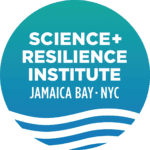From the Director
 We are now two years out from Hurricane Sandy. Looking back, we can see inspiring indications of recovery even in the hardest hit communities in New York. An outpouring of effort has helped the city’s infrastructure and natural systems begin to bounce back. But there is still a lot to learn and a lot to do to prepare for an uncertain future of disturbances such as these. Pressures arising from the climate change and urban growth will further complicate the challenge. Under these conditions, our capacity to anticipate and plan for the future will require new ways of learning and doing things. Narrowing in on vulnerable places such as Jamaica Bay can help focus new knowledge on recovery, restoration, and resilience efforts that have the best chance for success.
We are now two years out from Hurricane Sandy. Looking back, we can see inspiring indications of recovery even in the hardest hit communities in New York. An outpouring of effort has helped the city’s infrastructure and natural systems begin to bounce back. But there is still a lot to learn and a lot to do to prepare for an uncertain future of disturbances such as these. Pressures arising from the climate change and urban growth will further complicate the challenge. Under these conditions, our capacity to anticipate and plan for the future will require new ways of learning and doing things. Narrowing in on vulnerable places such as Jamaica Bay can help focus new knowledge on recovery, restoration, and resilience efforts that have the best chance for success.
Assessing what we know about Jamaica Bay as an urban coastal system is a first step. Setting our sights on this goal, we at the Institute over the last year have coordinated experts to compile knowledge about the Bay’s resilience. A report in development, titled Resiliency Practice in the Jamaica Bay Watershed: Building a Research and Policy Agenda for Action, will assess the leading science about the Bay’s systems and ways to advance science-policy translation. The project brings together a number of interdisciplinary efforts launched over the last year to understand the social science, monitoring and modeling needs of the Bay. This effort is closing the gaps in our understanding about where we have come from, about what the future will bring, and about how to prepare for its uncertainties. We expect to release a draft version of the report in 2015.
In addition to identifying knowledge gaps, the assessment is a tool for deepening the networks of communication, science, and public engagement that have been expanding in recent years in Jamaica Bay. The SRI@JB is positioned to become a key node in this network, thanks to the dedicated efforts of numerous people at the National Park Service, the City of New York, and the nine institutions in the SRI@JB consortium, who have helped to carry this unique partnership forward. In addition, the SRI@JB has benefitted greatly from foundational operational support provided by CUNY and, in particular, Brooklyn College. The Jamaica Bay-Rockaway Parks Conservancy (JBRPC) also has offered valuable logistical and technical support and like-minded commitment to restoring Jamaica Bay.
Thanks to these and other contributions, SRI@JB was able to launch a range of science and engagement projects this year. With support from the Rockefeller Foundation and the National Park Service, we inaugurated a suite of new research endeavors. The knowledge gained through these efforts will help us better understand how the Bay functions and how people of all types can work on shared projects to strengthen coastal communities and ecosystems. We inaugurated a summer lecture series that hosted public events around the Bay featuring leading researchers, policymakers, and local leaders. We also began the design of an extension program to further engage with the information, knowledge, and resource needs of communities around the Bay. And through the Institute’s Public Agency Council, agency representatives have come together to better assess the sorts of resiliency investments that are needed.
In the coming century, we will need to bring together the best of science, public coordination, and community activity to wrestle with challenges in urban coastal estuaries such as Jamaica Bay that may be unprecedented in scale and scope. The Institute aims to meet these challenges directly. Efforts during the last year have been a good start. In the coming years, under the leadership of the incoming permanent director, Adam Parris, the Institute will expand this work. I and all those involved in SRI@JB are excited to welcome him in his new position. Adam brings the skills, experience, and enthusiasm that will help rapidly build the Institute’s operations and programs. With support from all of you, the SRI@JB is in an excellent position to advance new ideas and practices that will help Jamaica Bay, its communities, and urban coasts around the world find ways to confront an uncertain future in the best ways possible.
– William Solecki, Interim Director






